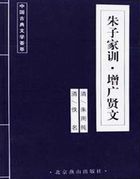In this high rating of things practical the captains of industry are also substantially at one with the current common-sense award of the vulgar, so that their advocacy of practical education carries the weight of a self-evident principle. It is true, in the long run and on sober reflection the award of civilized common sense runs to the effect that knowledge is more to be desired than things of price; but at the same time the superficial and transient workday sense of daily needs -- the "snap judgment" of the vulgar -- driven by the hard usage of competitive bread-winning, says that a gainful occupation is the first requisite of human life; and accepting it without much question as the first requisite, the vulgar allow it uncritically to stand as the chief or sole and that is worth an effort. And in so doing they are not so far out of their bearings; for to the common man, under the competitive system, there is but a scant margin of energy or interest left over and disposable for other ends after the instant needs of bread-winning have been met.
Proficiency and single-mindedness in the pursuit of private gain is something that can readily be appreciated by all men who have had the usual training given by the modern system of competitive gain and competitive spending. Nothing is so instantly recognized as being of great urgency, always and everywhere, under this modern, pecuniary scheme of things. So that, without reflection and as a matter of course, the first and gravest question of any general bearing in any connection has come to be that classic of worldly wisdom: What profiteth it a man? and the answer is, just as uncritically, sought in terms of pecuniary gain. And the men to whom has been entrusted the custody of that cultural heritage of mankind that can not be bought with a price, make haste to play up to this snap judgment of the vulgar, and so keep them from calling to mind, on second thought, what it is that they, after all, value more highly than the means of competitive spending.
Concomitant with this growing insistence on vocational training in the schools, and with this restless endeavour of the academic authorities to gratify the demand, there has also come an increasing habitual inclination of the same uncritical character among academic men to value all academic work in terms of livelihood or of earning capacity.(3*) The question has been asked, more and more urgently and openly, What is the use of all this knowledge?(4*) Pushed by this popular prejudice, and themselves also drifting under compulsion of the same prevalent bias, even the seasoned scholars and scientists -- Matthew Arnold's "Remnant" -- have taken to heart this question of the use of the higher learning in the pursuit of gain. Of course it has no such use, and the many shrewdly devised solutions of the conundrum have necessarily run out in a string of sophistical dialectics. The place of disinterested knowledge in modern civilization is neither that of a means to private gain, nor that of an intermediate step in "the roundabout process of the production of goods."As a motto for the scholars' craft, Scientia pecuniae ancillans is nowise more seemly than the Schoolmen's Philosophia theologiae ancillans.(5*) Yet such inroads have pecuniary habits of valuation made even within the precincts of the corporation of learning, that university men, -- and even the scholarly ones among them, -- are no more than half ashamed of such a parcel of fatuity. And relatively few among university executives have not, within the past few years, taken occasion to plead the merits of academic training as a business proposition. The man of the world -- that is to say, of the business world puts the question, What is the use of this learning? and the men who speak for learning, and even the scholars occupied with the "humanities," are at pains to find some colourable answer that shall satisfy the worldly-wise that this learning for which they speak is in some way useful for pecuniary gain.(6*)If he were not himself infected with the pragmatism of the market-place, the scholar's answer would have to be. Get thee behind me!
Benjamin Franklin -- high-bred pragmatist that he was -- once put away such a question with the rejoinder: What is the use of a baby? To civilized men -- with the equivocal exception of the warlike politicians -- this latter question seems foolish, criminally foolish. But there once was a time, in the high days of barbarism, when thoughtful men were ready to canvass that question with as naive a gravity as this other question, of the use of learning, is canvassed by the substantial citizens of the present day. At the period covered by that chapter in ancient history, a child was, in a way, an article of equipment for the up-keep of the family and its prestige, and more remotely for the support of the sovereign and his prestige. So that a male child would be rated as indubitably worth while if he gave promise of growing into a robust and contentious man. If the infant were a girl, or if he gave no promise of becoming an effective disturber of the peace, the use or expediency of rearing the child would become a matter for deliberation; and not infrequently the finding of those old-time utilitarians was adverse, and the investment was cancelled. The habit of so deliberating on the pragmatic advisability of child-life has been lost, latterly; or at any rate such of the latterday utilitarians as may still entertain a question of this kind in any concrete case are ashamed to have it spoken of nakedly. Witness the lame but irrepressible sentimental protest against the Malthusian doctrine of population.















